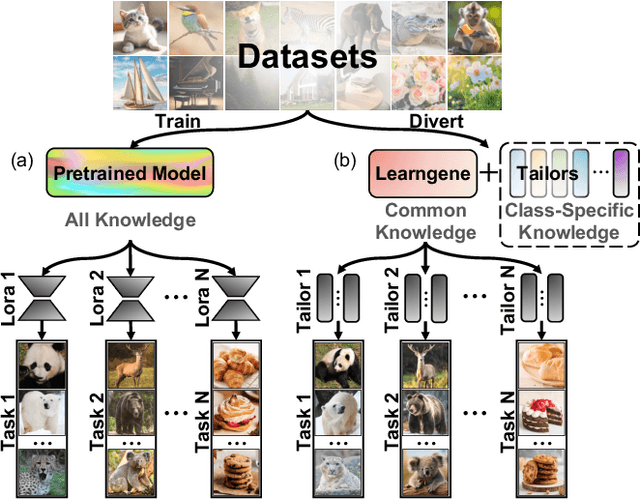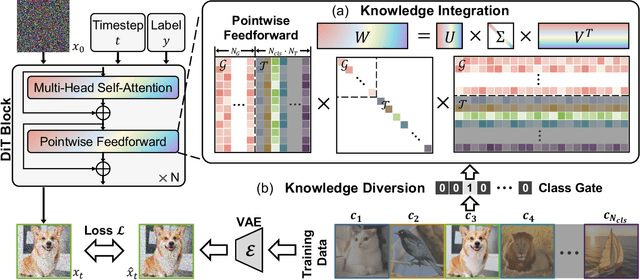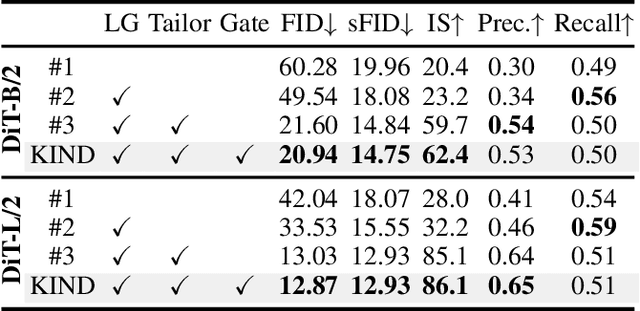KIND: Knowledge Integration and Diversion in Diffusion Models
Paper and Code
Aug 14, 2024



Pre-trained models have become the preferred backbone due to the expansion of model parameters, with techniques like Parameter-Efficient Fine-Tuning (PEFTs) typically fixing the parameters of these models. However, pre-trained models may not always be optimal, especially when there are discrepancies between training tasks and target tasks, potentially resulting in negative transfer. To address this, we introduce \textbf{KIND}, which performs \textbf{K}nowledge \textbf{IN}tegration and \textbf{D}iversion in diffusion models. KIND first integrates knowledge by decomposing parameter matrices of models using $U$, $\Sigma$, and $V$ matrices, formally inspired by singular value decomposition (SVD). Then it explicitly partitions the components of these matrices into \textbf{learngenes} and \textbf{tailors} to condense common and class-specific knowledge, respectively, through a class gate. In this way, KIND redefines traditional pre-training methods by adjusting training objectives from maximizing model performance on current tasks to condensing transferable common knowledge, leveraging the \textit{Learngene} framework. We conduct experiments on ImageNet-1K and compare KIND with PEFT and other learngene methods. Results indicate that KIND achieves state-of-the-art performance compared to other PEFT and learngene methods. Specifically, the images generated by KIND achieves more than 6.54 and 1.07 decrease in FID and sFID on DiT-L/2, utilizing only 45.4M trainable parameters and saving at least 35.4G FLOPs in computational cost.
 Add to Chrome
Add to Chrome Add to Firefox
Add to Firefox Add to Edge
Add to Edge